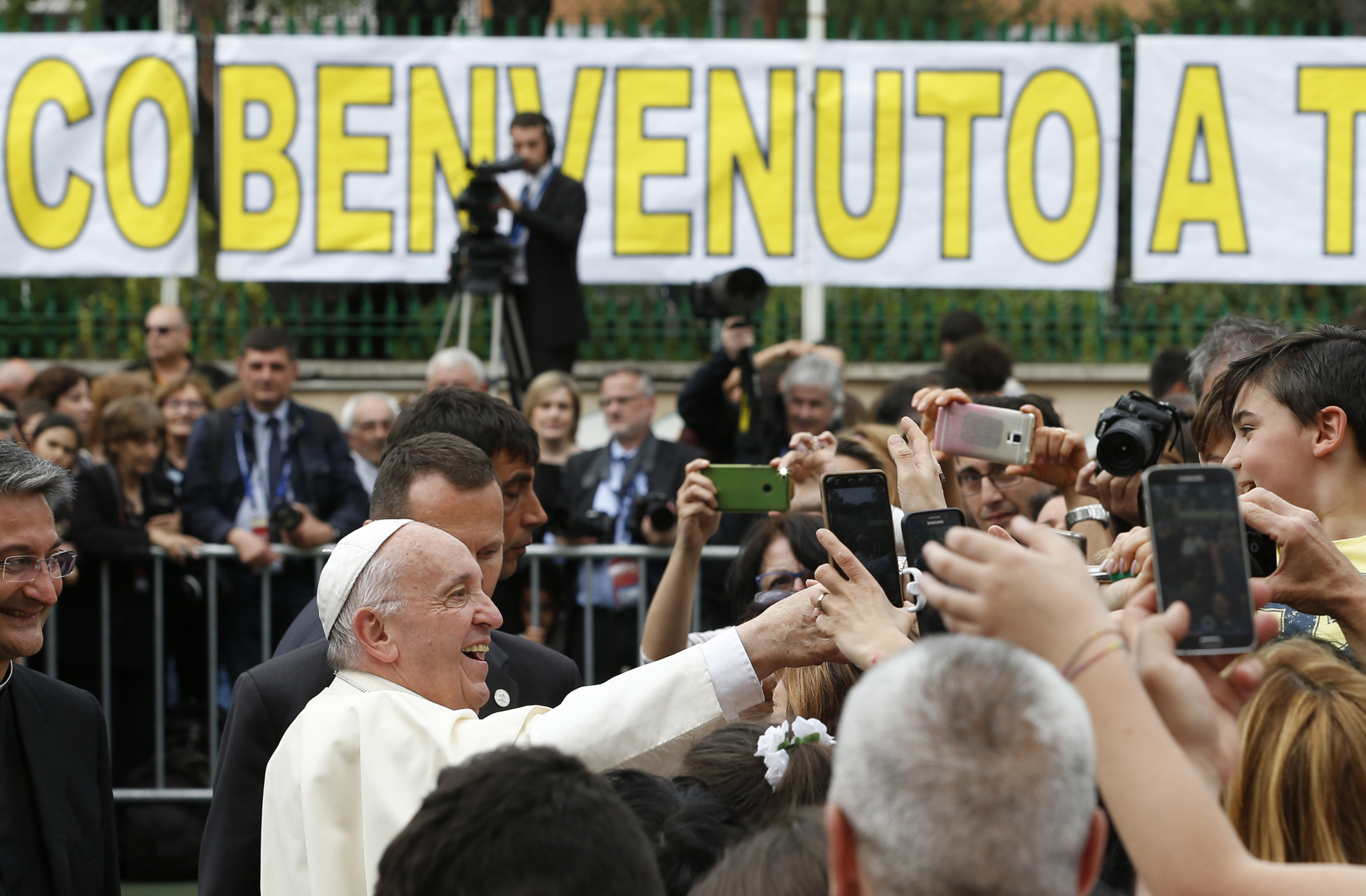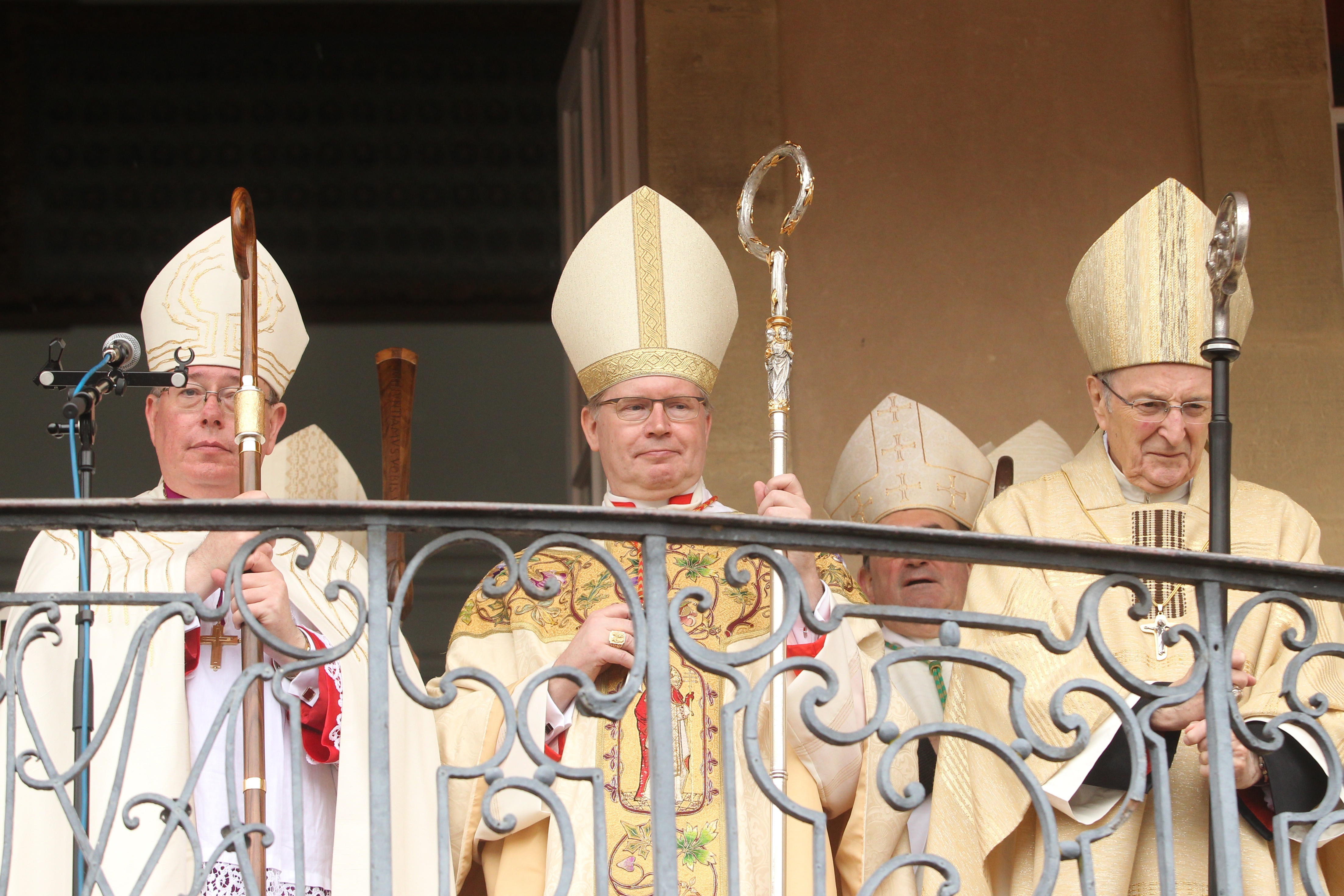A leading Dutch cardinal has described the attempt by Pope Francis to help resolve a dispute among German bishops over receipt of communion by Protestants married to Catholics as “completely incomprehensible”.
Three-quarters of the German bishops’ conference voted in February in favour of a pastoral handout, "To Walk with Christ, In the Footsteps of Unity: Mixed Marriages and Common Participation in the Eucharist”, which would give greater access to communion for Protestant spouses of Catholics. But seven bishops, including Cardinal Rainer Maria Woelki, Archbishop of Cologne, asked whether the handout conformed to canon law, and asked the Congregation for the Doctrine of the Faith (CDF) in Rome to intervene.
As a result a delegation of German bishops including Cardinal Reinhard Marx, president of the bishops’ conference, and Cardinal Woelki met on 3 May with CDF Prefect Archbishop Luis Ladaria and Cardinal Kurt Koch, president of the Pontifical Council for Promoting Christian Unity. Officials from both sides joined the meeting.
A Vatican statement issued following the summit said the Pope “appreciates the ecumenical commitment” of the bishops but wants them to iron out internal disagreements and come to a decision that is “as unanimous as possible”. Writing in the National Catholic Register, Cardinal Willem Jacobus Eijk, the Archbishop of Utrecht, was highly critical of this request.
“The Church’s doctrine and practice regarding the administration of the Sacrament of the Eucharist to Protestants is perfectly clear,” Cardinal Eijk wrote.
The Code of Canon Law, he pointed out, says this: “If the danger of death is present or if, in the judgment of the diocesan bishop or conference of bishops, some other grave necessity urges it, Catholic ministers administer these same sacraments licitly also to other Christians not having full communion with the Catholic Church, who cannot approach a minister of their own community and who seek such on their own accord, provided that they manifest Catholic faith in respect to these sacraments and are properly disposed.” (844 § 4)
This therefore applies only to emergencies, Cardinal Eijk said, especially where there is a risk of death. He pointed out that intercommunion is, “in principle, only possible with Orthodox Christians, because the Eastern Churches, although not in full communion with the Catholic Church, have true sacraments and above all, by virtue of their apostolic succession, a valid priesthood and a valid Eucharist”.
However, Protestants do not share faith in the priesthood or the Eucharist, he said. Most German Protestants are Lutheran, he pointed out, and “Lutherans believe in consubstantiation, which implies the conviction that, in addition to the Body or Blood of Christ, bread and wine are also present when someone receives them. If someone receives the bread and wine without believing this, the Body and Blood of Christ are not really present. Outside this moment of receiving them, there remains only the bread and wine and the body and blood of Christ are not present”.
The Catholic doctrine of transubstantiation implies the faith that “what is received under the figures of bread and wine, even if administered to someone who does not believe in transubstantiation and even outside the moment of administration, remains the Body or Blood of Christ and that it is no longer the substances of bread and wine”, Cardinal Eijk explained.
Because of these essential differences, communion should not be administered to a Protestant, he said, even if married to a Catholic, because the Protestant does not live in full communion with the Catholic Church and, therefore, does not explicitly share faith in her Eucharist.
The differences between faith in consubstantiation and that of transubstantiation are so great, the cardinal said, that the Church must really demand that someone who wishes to receive Communion (except in case of danger of death) explicitly and formally enters into full communion with the Catholic Church, in this way explicitly confirming acceptance of the faith of the Catholic Church, including the Eucharist.
Now, Cardinal Eijk pointed out, Pope Francis has informed the German episcopal delegation that it must discuss again the draft proposals for a pastoral document on, among other things, administering Communion, and try to find unanimity. “Unanimity about what?” he asked. “Assuming that all members of the German bishops’ conference, after having discussed them again, unanimously decide that Communion can be administered to Protestants married to a Catholic, will this — while being contrary to what the Code of Canon Law and the Catechism of the Catholic Church say in this regard — become the new practice in the Catholic Church in Germany?”
The practice of the Catholic Church, based on her faith, he concluded, does not change statistically when a majority of an episcopal conference votes in favour of it, not even if unanimously.
Pope Francis, he said, should have simply informed the German delegation of what the Code of Canon Law and the Catechism of the Catholic Church clearly stipulate.
Pic: Archbishop of Utrecht Cardinal Willem Jacobus Eijk, with Archbishop of Luxembourg, Jean-Claude Hollerich (L) and archbishop of Cologne Joachim Meisner (R) welcoming pilgrims who take part in the dancing procession of Echternach in front of the basilica in Echternach, Luxembourg, inn this file pic from 21 May 2013. The dancing procession of Echternach honours St. Willibrord (658-739) who founded the Abbey of Echternach around 700. Photo: THOMAS FREYR/DPA/PA Images



 Loading ...
Loading ...